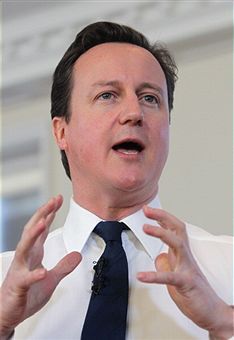 The clamour for a reshuffle is getting louder. Caroline Spelman is said to be a leading
candidate for ejection, following her awful performance over the forestry sell-off. Many also want Ken Clarke’s scalp. Party chairman Baroness Warsi has already been the target of gossip, while
dissatisfaction with Chief Whip Patrick McLoughlin is palpable. Then there is the desire by Nick Clegg to bring back David Laws, if he is cleared of financial malfeasance.
The clamour for a reshuffle is getting louder. Caroline Spelman is said to be a leading
candidate for ejection, following her awful performance over the forestry sell-off. Many also want Ken Clarke’s scalp. Party chairman Baroness Warsi has already been the target of gossip, while
dissatisfaction with Chief Whip Patrick McLoughlin is palpable. Then there is the desire by Nick Clegg to bring back David Laws, if he is cleared of financial malfeasance.
However, most of the talk of a reshuffle is fuelled by self-serving backbench MPs who lost out of jobs in the coalition negotiations. Those from the 2005 intake feel the 2010 intake breathing down their necks, while older MPs hiss about the “cult of youth”. A reshuffle that moved older MPs on from junior ministerial jobs could, say younger MPs, end the growing dissatisfaction in the Tory ranks.
But Cameron has never reshuffled his hand unless forced to do so – as his record in opposition and now in government proves. In addition, being in a coalition with the Lib Dems means that any change would be quite a complicated exercise.
The final reason why an imminent reshuffle is unlikely is because No 10 seems to have rejected a central tenet of Tony Blair’s governing style – namely that reshuffles make you look strong. In fact, they often make prime ministers look weak.
Let’s say that Caroline Spelman, the Party Chairman and the Justice Secretary were all moved. Would that make the Prime Minister look strong? No, it would make him look weak and scared of his party. Would it make the public sit up and take notice? Hardly. Spelman is not a household name and nobody thinks that the government’s key public service reform and economic policies would be affected by her dismissal. For these reasons, anything else than a minor switch – say a change of Chief Whip – is highly unlikely.






Comments